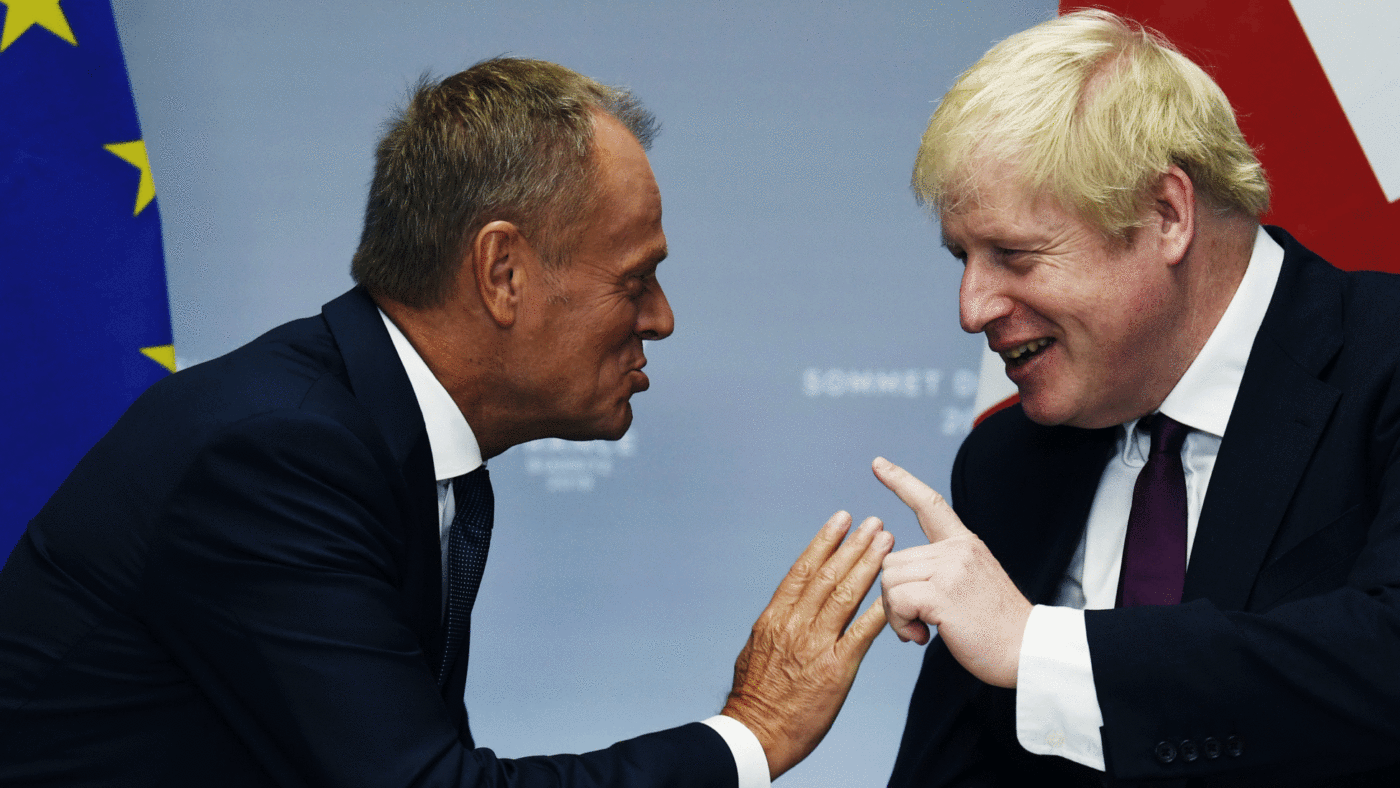Boris Johnson has been telling us all – perhaps more importantly, all of them over the Channel – that the £39 billion divorce bill isn’t actually owed if there’s no Brexit deal. This is all good negotiating but there’s a trick being missed here. There is no divorce bill at all. Never has been and never will.
The EU – or more, spefically, the Comission – is claiming that the United Kingdom agreed, in the past, to pay certain sums into its budget, such as, say the money for the pensions of Britons who went to work for EU institutions, or our share of the guarantees on various sums lent out by rescue funds to Greece. Their argument is that we agreed in that past to tax ourselves those sums and hand it over. Well, OK, say that we did.
Is this a divorce bill? Quite clearly not – we’d still have to pay exactly those same sums whether we’re in or whether we’re out. The entire EU case that we owe them a divorce bill is based on an insistence that the UK’s obligations aren’t determined by our status vis-a-vis Europe. The sum claimed doesn’t change according to whether we’re In or Out and therefore the sum has no influence at all on our decision to leave or remain. As our Prime Minister knows of course, he’s being asked for a share of the household bills run up before the divorce, and the issue of final separation makes no difference to that whatsoever.
Where there is an issue to discuss is in the capital account. The assets built up over the years have been partly funded by our contributions, and this needs to be separated out. Should we not be given our share of the capital we’ve put into the European Central Bank (which includes contributions from non-Eurozone members), or, indeed, the European Investment Bank?
Unlike the UK’s financial obligations, whatever the EU owe us from these accumulated assets does change if we leave – therefore the only divorce bill owed is from the EU to us. The only real negotiation to be had here is precisely how much.
This is an example of the negotiation problem all along. Nothing is ever settled until everything is settled. Which isn’t, as we have all noted, the way that either side has been negotiating up until now. Michel Barnier has been demanding a step by step process, whereby negotiations only progress to the next phase after we’ve dealt with the first. Amazingly, May’s team went along with this, which was a distressing breach of basic good sense in such circumstances.
Certainly, it’s possible that playing hardball in a negotiation leads to there being no agreement. If that’s the case we might need to think about tempering our demands so as to make sure that we do in fact reach a deal. Except there’s that one great truth behind all of this. The various estimates of the cost being outside any of the EU trade arrangements (whether devised by the Treasury, OECD, or anyone else) tell us that this would be damaging to the UK economy. But they don’t take into account one key option available to the UK: that of reverting to our historic position and declaring unilateral free trade by abolishing all tariffs. This would, as Patrick Minford has been telling us all this past decade and more, be hugely beneficial to us all.
If we do that, the worst that can happen to the UK would be that we get to buy, as we wish, from the finest and most economic producers of everything around the world without restriction or limitation. The Prime Minister is therefore in a rather handy position when he discusses who sends who a cheque in the near future – please don’t force me into that thicket of free trade to the nation’s great benefit.
And if Johnson can’t win a negotiation playing such a hand then we’ve still got a few people left who haven’t had the opportunity to be Prime Minister yet, haven’t we?
CapX depends on the generosity of its readers. If you value what we do, please consider making a donation.


